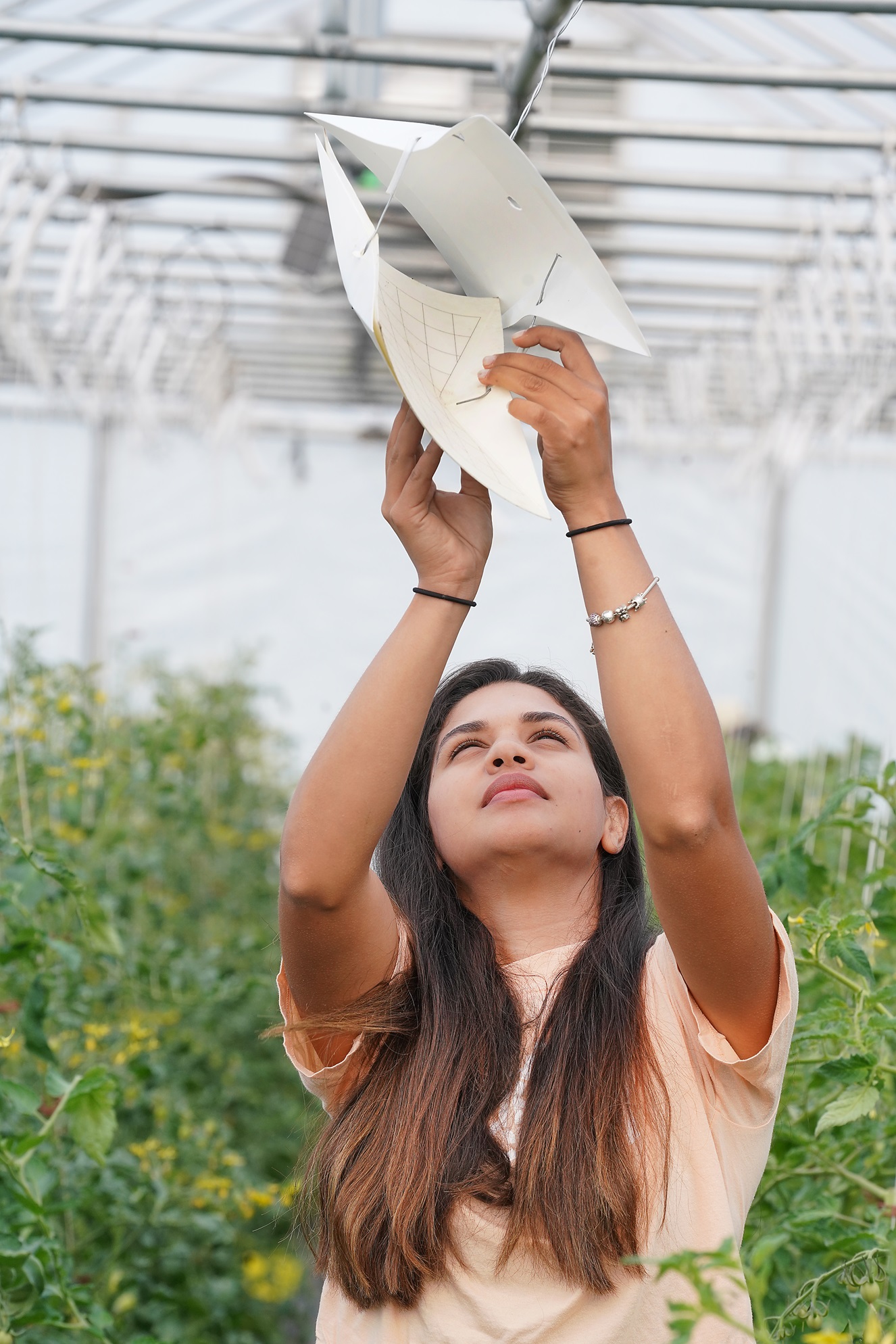Purdue Student Farm serves as 1 of nearly 40 entomology research sites across the United States
T
he Purdue Student Farm, located on campus on Cherry Lane, is just one of the nearly 40 sites that an entomology research team visits once per month. Their research is focused on monitoring high tunnels across three states to document various pests, weeds, temperature changes and crop production.
“One part of this project is to determine how urbanization impacts abiotic conditions and pest pressure on high tunnel farms,” says Samantha Willden, postdoctoral researcher in the Department of Entomology. “Pest pressure is often higher in cities and we’re hoping to collect enough data to determine why and to identify effective options for pest management.”
Image created by Purdue AgComm. Thomas Kronewitter.
Samantha Willden is currently a postdoctoral researcher in Professor Laura Ingwell’s lab. She and research scholars Allison Zablah, Milena Agila and Bela Arias are a part of a four-year NIFA Specialty Crop Research Initiative, focused on optimizing pest management in high tunnels to increase the resiliency of local food systems.
“High tunnels extend the growing season for fruit and vegetable plants, benefiting local food production in our Midwest climate,” says Wenjing Guan, Horticulture and Landscape Architecture associate professor. “The altered environment also influences various insects, both beneficial and harmful, coexisting with the plants. This project will improve our knowledge on crop and insect dynamics within high tunnels, as well as how urban and rural environments uniquely shape these interactions.”
Local food systems are an important driver of specialty crop production. Despite the emerging interest and economic opportunity of local food systems, resources (e.g., research, funding) have disproportionately favored conventional large farms over the more diffuse network of small-medium sized farms that take part in direct-to-consumer (DTC) sales.
 The project, in collaboration with the University of Illinois and New Hampshire, aims to accomplish four objectives:
The project, in collaboration with the University of Illinois and New Hampshire, aims to accomplish four objectives:
- Identify insect complexes encountered by high tunnel producers in different growing regions (urban vs. rural) and varying in crop composition (simple vs. diverse)
- Determine the consequences of seasonality for high tunnel environments that impact horticultural and pest management outcomes
- Evaluate the efficacy and compatibility of biological control in high tunnels
- Create economic tools to support specialty crop production in high tunnels
“We are thrilled to receive funding and recognition from USDA for the important role that our small farmers have in local food systems,” says Laura Ingwell, Department of Entomology professor. “High tunnels are one of the most accessible tools to help grow food year-round in our temperate climate. The support and participation of our farmers being involved in this grant has been crucial to helping us develop management strategies and tools that they can implement that make sense economically and are effective at managing pests they encounter in their production systems.”
The Purdue Student Farm is a small, sustainable farm managed by the Department of Horticulture and Landscape Architecture (HLA) and is located on campus near the Kampen Golf Course and Daniel Turf Center off Cherry Lane.






